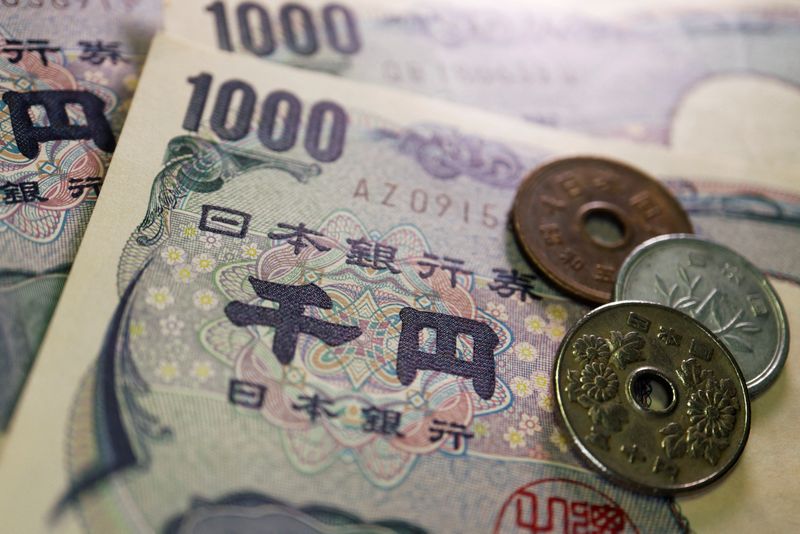Govt panel member says BOJ’s yield cap causing ‘negative spiral’ of yen falls
2022.06.23 08:01

Coins and banknotes of Japanese yen are seen in this illustration picture taken June 16, 2022. REUTERS/Florence Lo/Illustration
By Leika Kihara and Yoshifumi Takemoto
TOKYO (Reuters) – The Bank of Japan’s resolve to keep borrowing costs ultra-low is causing a “negative spiral” of yen weakness that highlights the need to tweak its yield cap policy, said Yuri Okina, a member of a key government panel, adding to criticism of the BOJ’s policy.
BOJ Governor Haruhiko Kuroda has vowed to defend the bank’s 0.25% cap for the 10-year Japanese government bond (JGB) yield, to support the economy with very low interest rates.
The policy divergence between the BOJ and the U.S. Federal Reserve, which is hiking rates aggressively, pushed the yen to a 24-year low of 136.71 per dollar on Wednesday. It bounced back slightly to around 135.46 on Thursday afternoon.
“Recent moves are very sharp and problematic. The yen could weaken further as the Japan-U.S. interest rate gap widens,” said Okina, a former BOJ official.
“We’re seeing a negative spiral in which Kuroda’s comments stressing the need to defend the 0.25% cap are accelerating yen falls,” she told Reuters on Wednesday.
To avoid further yen falls, the BOJ could tweak its message and stress more that yen moves would be taken into account in guiding monetary policy, she said.
There was also scope to fine-tune the BOJ’s yield curve control (YCC) policy and allow long-term interest rates to move more flexibly around its target, Okina said.
“It’s hard to raise rates drastically now because Japan must prevent its economy from slipping into stagflation,” she said.
“But at some point in the future, the BOJ needs to consider allowing the 10-year yield to move at a wider range, instead of pinning it” around zero, Okina said.
Under YCC, the BOJ sets a -0.1% target for short-term rates and that for the 10-year JGB yield around 0%. It has also pledged to buy unlimited amounts of 10-year JGBs daily to defend a 0.25% cap around its 10-year yield target.
Kuroda has repeatedly said the BOJ does not target currency rates in guiding monetary policy, and brushed aside calls from some lawmakers to counter yen falls by tweaking YCC.
Some analysts and opposition lawmakers have recently escalated their criticism over the BOJ’s ultra-loose policy, blaming it for causing an unwelcome yen tumble that is inflating the cost of importing fuel and raw material.
Okina is currently a member of a government panel debating Prime Minister Fumio Kishida’s growth strategies. She is also head of private think tank Japan Research Institute.








